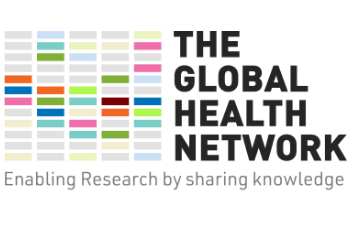Resources:
Course Overview
Duration:
This short course should take 45 - 60 minutes to complete.
Certification:
A certificate is issued once a minimum of 80% is achieved in the final quiz section.
Background:
This eLearning course builds on the findings of a systematic literature review and a multi-site qualitative study of stakeholder experiences of, and views about best practices in sharing individual-level data from clinical and public health research in low and middle income settings. The results of the study are reported in an open-access special issue of the Journal of Empirical Research on Health Research Ethics (JERHRE). (Bull, Cheah, et al., 2015; Bull, Roberts, & Parker, 2015; Cheah et al., 2015; Denny, Silaigwana, Wassenaar, Bull, & Parker, 2015; Hate et al., 2015; Jao et al., 2015; Merson et al., 2015; Parker & Bull, 2015)
Summary:
Research funders, regulators and researchers are increasingly calling for the sharing of individual-level data from biomedical and public health research. Despite its potential importance and the ethical arguments in favour of it, data sharing presents important ethical, social, and institutional challenges. Effective and appropriate data sharing requires the development of models of good data sharing practices which:
- maximize potential benefits;
- minimize risks of harm;
- ensure that the rights and interests of stakeholders are respected;
- are capable of obtaining and maintaining stakeholders' trust and confidence.
This peer reviewed course outlines ethical aspects of sharing individual level research data and proposed best practices. It aims to be of value to those designing and reviewing individual research protocols where data sharing is anticipated, and to those developing institutional policies and processes for governing data sharing.
Objectives:
Upon successful completion of this course, you should be able to:
- Describe potential benefits of sharing data;
- Identify ethical challenges raised by sharing individual-level research data;
- Describe proposed best practices in governing and sharing research data.
Acknowledgements
The Global Health Training Centre is built through the support and partnership of the World-Wide Antimalarial Resistance Network and the East African Consortium for Clinical Research.
Funding:
The development of this eLearning course was funded by the Wellcome Trust Strategic Award (096527) on behalf of the Public Health Research Data Forum. The Forum brings together more than 20 health research funders who are committed to increasing the availability of health research data in ways that are equitable, ethical, efficient, and will accelerate improvements in public health (See www.wellcome.ac.uk/publichealthdata.)
Authors:
- Dr Susan Bull - The Ethox Centre, Nuffield Department of Population Health, University of Oxford
- Professor Michael Parker - Director, The Ethox Centre, Nuffield Department of Population Health, University of Oxford
Reviewers:
- Dr Vicki Marsh - Centre for Tropical Medicine and Global Health, Nuffield Department of Clinical Medicine, University of Oxford, Oxford, United Kingdom & KEMRI Wellcome Trust Research Programme, Kenya
- Professor David Osrin - UCL Institute for Global Health, London, United Kingdom
- Professor Douglas Wassenaar - School of Applied Human Sciences, University of KwaZulu-Natal, Pietermaritzburg, KwaZulu-Natal, South Africa
Use and reproduction of these e-learning materials:
These e-learning materials are owned by Global Health Bioethics, Research Ethics and Review. You are free to share or adapt this material but you must attribute it to Global Health Bioethics, Research Ethics and Review using the link https://bioethicsresearchreview.tghn.org/.
Your feedback is greatly appreciated; please take a couple of minutes to tell us your thoughts on this course:

